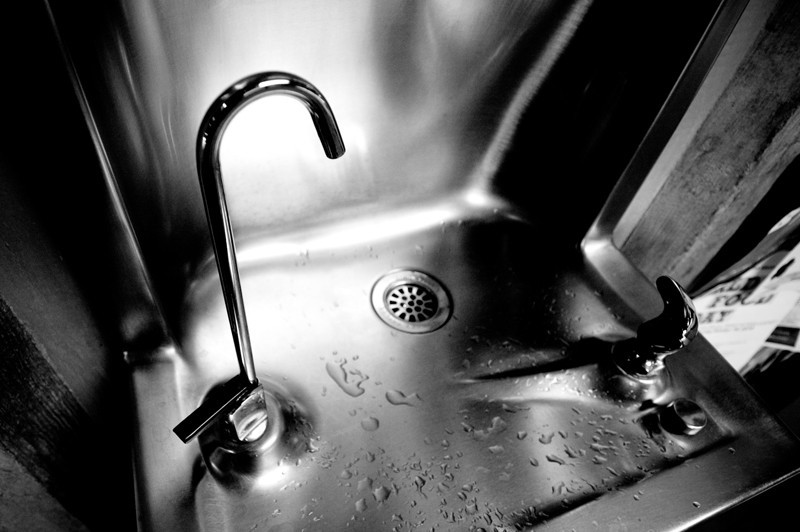Campus water: unbottled
Water ban still holding strong with new initiatives in store for the future
On March 23, 2009, the University of Winnipeg became the first “bottle-free” campus in Canada in an effort to stop the privatization of water for students.
After a year-and-a-half, the ban is still in effect and University of Winnipeg Students’ Association (UWSA) president Jason Syvixay believes there is more progress to be made.
“We always see a cycle of first-year students coming in who believe that bottled water is the only clean water source,” he said.
Since the ban, the UWSA has provided first-year students with water bottles and encourages students to refill their bottles at the newly modified water refill stations around campus.
Environmentally, some are wondering why other bottled beverages continue to be sold on campus.
“Our campaign was centred around the issues of water being a basic human right,” Syvixay explained. “The fact that we’ve eliminated 38,400 (bottles from being sold) is a bonus.”
On July 28 of this year, the General Assembly of the United Nations declared that water is a human right worldwide. It’s estimated that before the ban, students were spending over $48,000 on bottled water, whereas public drinking water in Canada is free.
“We should not have to pay for bottled water if we don’t have enough money to pay for tuition in the first place,” said Syvixay.
Syvixay said the next step in the initiative is to get rid of flavoured and vitamin waters.
Diversity Foods, who sell food and beverages to students every day on campus, are not surprised that students accept the bottled water ban.
“We have people ask every now and again – maybe a little bit more at the beginning of each school year,” said Lydia Warkentin, manager of campus living (food services) for the University of Winnipeg.
“ We should not have to pay for bottled water if we don’t have enough money to pay for tuition in the first place.
Jason Syvixay, UWSA president
“Nobody has been hostile. A lot of kids find it very interesting.”
As to why vitamin and flavoured bottled water is still being sold, Warkentin said that she trusts that the senior administration of the university will use their best negotiating skills when it comes time to renew the contract with campus drink supplier, PepsiCo.
“The university should be a hotbed for ideas and a response to world issues,” she said. “To participate in that has been great for Diversity. (Even) if the ban were to be lifted, we would not sell bottled water.”
Other ways Diversity is helping to maintain a sustainable campus for students is by using local and organic food when possible, using compostable take-out packaging and supplying clean reusable cups for drinking water.
Laura Butler, a fourth-year English major, does not have any issues with the ban.
But she does not think it’s necessary to apply it to flavoured or vitamin waters.
“It’s not exactly water, there’s a lot of sugar and ingredients added,” she said. “If they applied it to them, they’d have to apply it to every drink be it juice, pop or anything really.”
For more information on the ban, visit www.insidethebottle.org.
Published in Volume 65, Number 7 of The Uniter (October 14, 2010)







